Dileep Jhaveri
Mumbai, India
Poet’s statement: As a poet, however one may await inspiration as a chosen one, writing poetry is a matter of conscious decision. The work of the poet requires a close acquaintance with the literature of the world and other forms of art. Just as the healing touch of the physician is secured after years of study, accumulating experience both of success and failure, earning the pleasure of poetic moments requires burning oil for several midnights. These poems explore the relationship between life and poetry on one hand and the personal with the universal on the other. “Once This Mist Clears” has love as its centre. But the life of the one wanting to love is fragmented in ordinariness, boredom, and melancholy. Searching for allusions from nature for these feelings, a pattern emerges, corresponding with the interior of a house (or mind) and environment (or universe). Clearing of the mist also reveals love at its innermost. The poem “Lips and Tongue” is a deliberate exercise, like an experiment in pharmacology. The association between lips and tongue is viewed in various perspectives. Surprises await through alterations, like adding or replacing a molecule in a chain or rotating an isomer. “I Did Not Know” is an exploration of a world where man is not at the core. The dynamic stream of evolution here is not only from one species to another, but also from feeling to aesthetics, from perception to poetry. This is how scientific training extends horizons of the poetical process and enhances aesthetic responsibility.
| Once this mist clears
Once this mist clears Once this mist clears When this mist clears
|
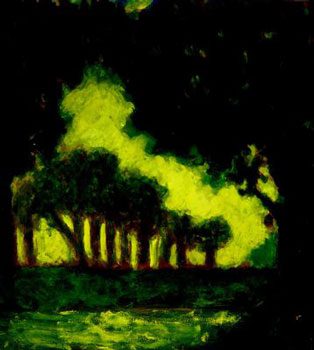
Untitled, ca. 1935-36 |
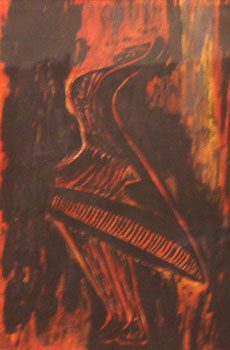
Untitled |
Before writing poetry
One must learn many languages The language of shadows and scents The language of roof holes Winds know the language of desert and sea My footprints make the dust wordy in darkness |
| Lips and tongue
For the blind lips From the wound of lips Words passionately kiss melting lips The lips close in sleep The lips move apart The word is dough |
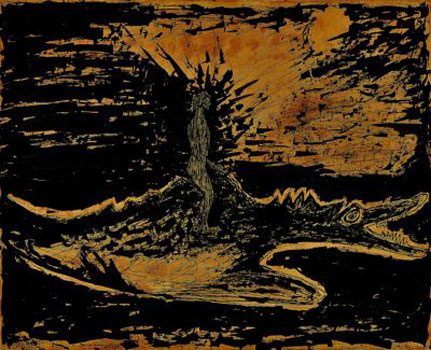
Untitled, ca. 1929-30 |
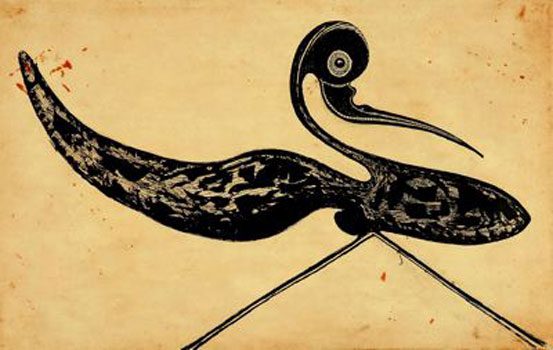
Untitled, 1928
|
Happiness
Happiness is a pockmarked stone When the sea ebbs away Tide returns and on the momentarily seen porous stone |
| I did not know
I did not know that I was a bird I did not know that I was a flower I did not know that I was a fish I did not know that I was a dream I did not know that I was a poet |
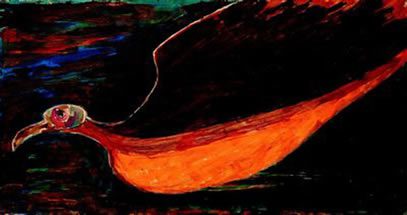
Untitled, ca. 1929 |
DR. DILEEP JHAVERI is a practicing general physician based in Thane, near Mumbai, and a well-known Gujarati poet and playwright. He has published one collection of poetry in Gujarati entitled Pandukavyo ane Itar (1989) and a play Vyaasochchhvas (2003), which has subsequently been translated into English as A Breath of Vyas by Ms. Kamal Sanyal. In addition, many of his poems have been anthologized, and his poetry has been translated into English, Hindi, Marathi, Malayalam, Bengali, Korean, Chinese, and Japanese. He has received the Critic Award (1989), Jayant Pathak Award for Poetry (1989), and the Gujarati Sahitya Parishad Award (1990). Inside India, he has been invited to read his works by the Central and State Sahitya Akademis, Universities, and literary groups. He also has been invited to read widely abroad including at the Asian Poets’ Conference in Korea in 1986, Taiwan in 1995, and such other countries as Japan, Singapore, Malaysia, and Indonesia. Most recently, he was invited to read his poetry in the U.S. by Georgetown University and South Asian Language Association for the organization’s 2009 convention. Dileep Jhaveri serves on the editorial boards of Museindia.com and the Kobita Review.
RELATED ARTICLE
Timelessness of the intangible: an interview with Dileep Jhaveri
Highlighted in Frontispiece Summer 2012 – Volume 4, Issue 3
Summer 2012 | Sections | Poetry

Leave a Reply